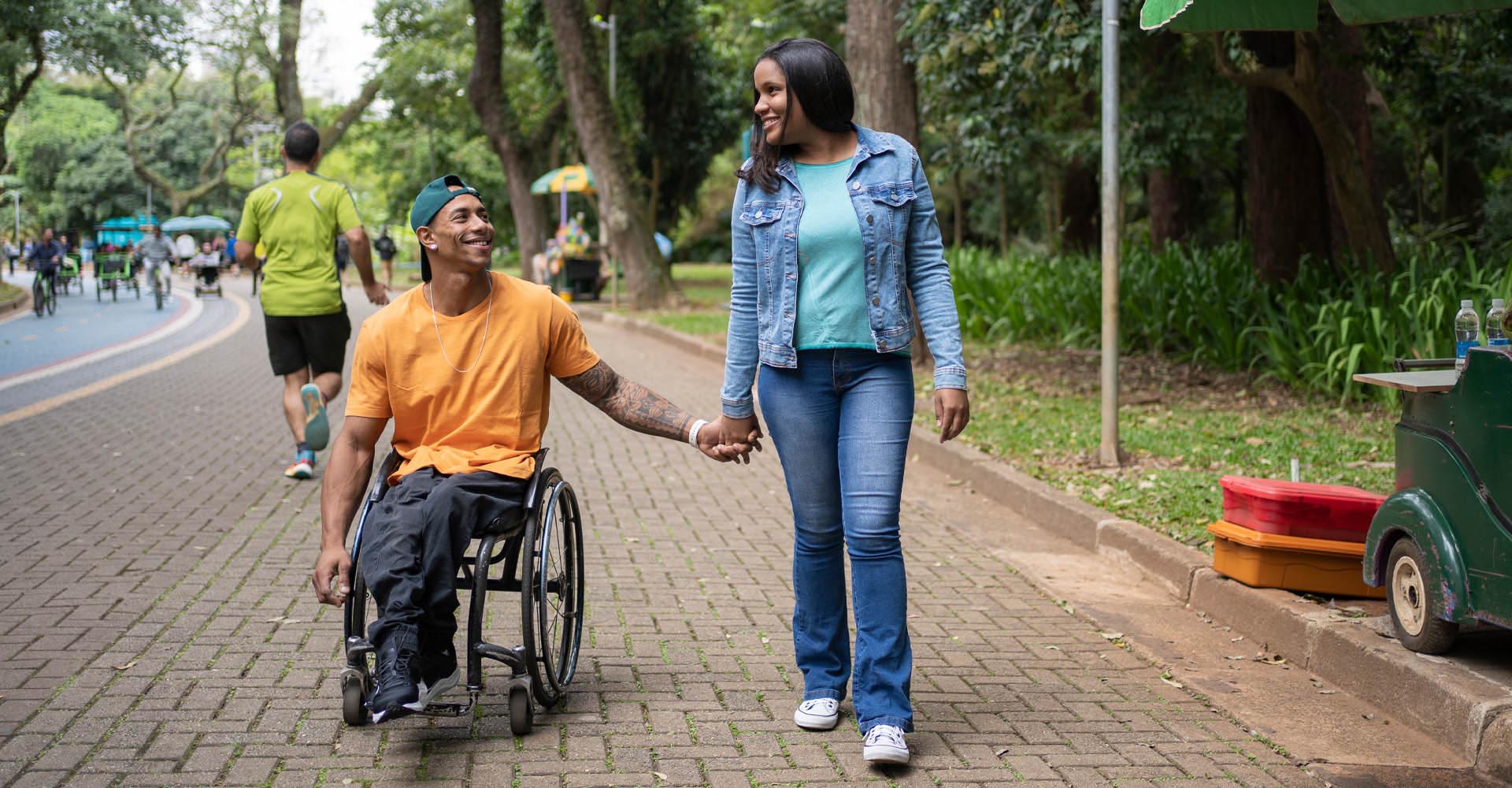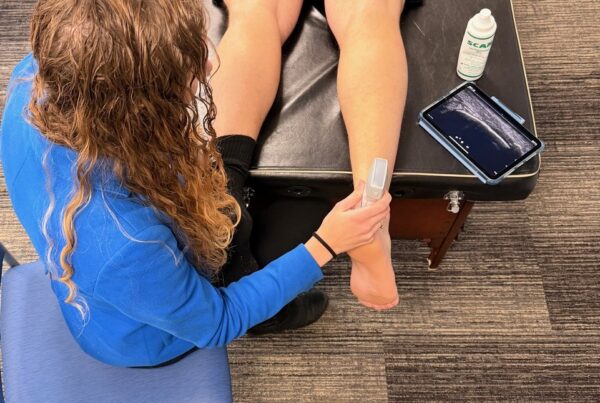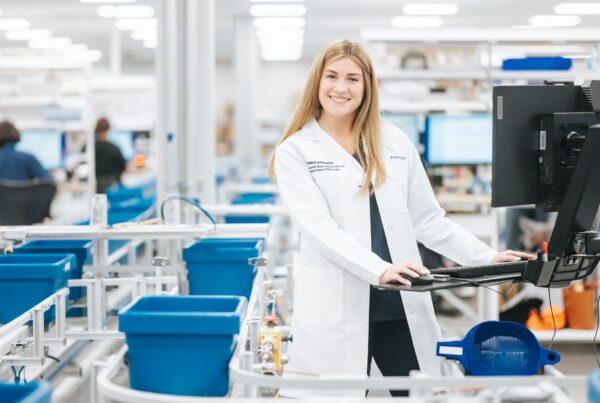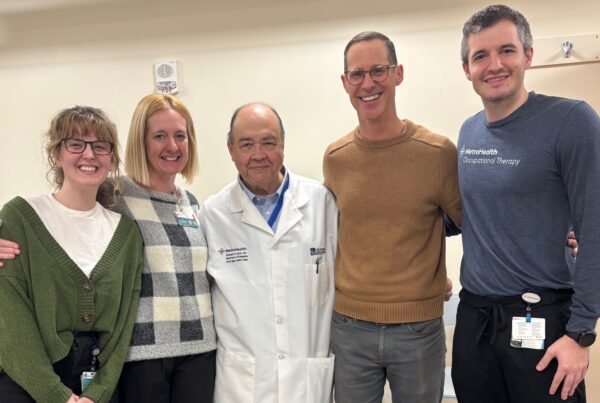As an occupational therapist with the MetroHealth Rehabilitation Institute, Gillian Gulan, MS, OTR/L, helps people with spinal cord injury regain their ability to perform activities of daily living (ADLs). When people think of ADLs, they often think about basic tasks like eating and putting on clothes. Intimacy and sexual health, however, are just as basic to the human experience and important to a patient’s recovery.
Spinal cord injuries can alter libido, sensation, arousal and sexual function for both men and women, often leading to challenges with self-esteem and relationships.
Gulan, who has worked at MetroHealth’s inpatient neuro rehab unit since 2010, recognizes her unique position in helping patients reclaim all facets of their lives—including their sexual health.
“While these conversations can be uncomfortable, they are necessary. Not talking about it is a disservice to those we serve,” Gulan says. “Being able to have candid conversations helps patients and partners navigate changes, manage expectations and maintain intimacy.”
Lived Experience, Forward Progress
MetroHealth is one of only 18 Spinal Cord Injury Model Systems in the U.S.—a signifier of comprehensive, coordinated care and research—and Gulan believes sexual health should be part of MetroHealth’s best practice care. However, there hasn’t been a standard and consistent approach, and she wanted to change that. Gulan talked with peers, including Blake Perkins, PT, DPT, ATP, with the Adaptive Life Technologies Lab, and the idea of the Adaptive Intimacy Lab was born. Perkins himself uses a wheelchair and his lived experience with spinal cord injury informs his work.
With the Adaptive Intimacy Lab, Gulan envisions a space where therapists can talk with patients about their concerns and allow them to explore technologies that may increase autonomy with physical and sexual intimacy.
To bring the idea to life, she partnered with The MetroHealth Foundation to apply for a grant from the Christopher & Dana Reeve Foundation. It was a full circle moment as Reeve had been treated at the MetroHealth Rehabilitation Institute at one point during his journey.
“The Reeve Foundation was very receptive to the idea and liked that we were thinking so broadly and intently about lives of those with spinal cord injury,” Gulan says.
The Reeve Foundation awarded a grant for nearly $25,000, which was used to:
• Retrofit an existing space into a simulated apartment/bedroom space
• Purchase technologies that increase autonomy and independence with physical and sexual intimacy and environmental control
• Fund two community consultants living with paralysis to advise on the Adaptive Intimacy
A New Meaning For Safe Sex
“My goal is to create a space where we can have conversations about safe sexual practices, physical limitations and the use of medical interventions,” Gulan says. “Right now, we’re in a big open gym—that’s not ideal for private conversations about sex and intimacy.”
The Adaptive Intimacy Lab will establish a safe and dignified space where autonomy in physical and sexual intimacy, environmental controls and accessibility can be effectively addressed. The lab should be open by this summer and Gulan is excited about how it will transform this aspect of patient care for individuals with spinal cord injury.
“I’m nervous and proud—this is important and meaningful for people with spinal cord injury, and I can’t wait to see it being used by our inpatient and outpatient teams alike.”
Leaders in rehabilitation, research, and education to improve care for the most complex injuries and illnesses. Visit our website for more information about the MetroHealth Rehabilitation Institute or call:
- Outpatient appointments for adults and children, call 216-778-4414
- Inpatient services or admission for adults and children 13 yrs+, call 216-778-4167
Do you want to help? The MetroHealth Foundation is making a difference every day. Learn more or give at metrohealth.org/foundation.











